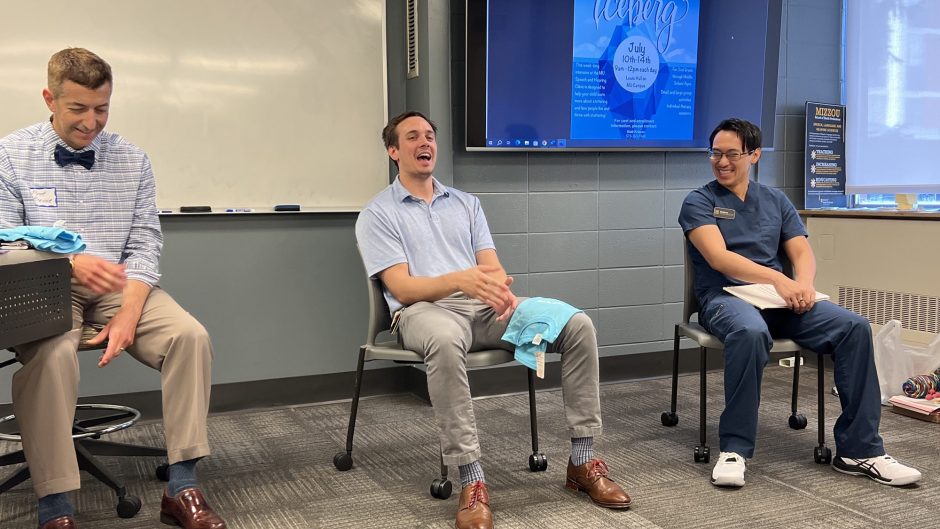
Quang Le has been stuttering since he was 7 years old.
Now in the third year of pursuing his Occupational Therapy Doctorate at the University of Missouri, Le said it wasn’t until much later in life that he learned to embrace his speech impediment and truly advocate for himself.
“I knew I stuttered because every single time I was in class or in the car with my mom or dad, people would ask me why I kept repeating myself,” Le said. “I wish I had been told that stuttering was normal instead of people saying I needed to fix part of who I am.”
While that early criticism was difficult for Le, he has since realized the numerous advantages of having a stutter.
“Someone might be feeling frustrated, stressed, angry, sad, or depressed — all things that I personally have felt about my stutter,” he said. “That empathy is definitely an advantage for me in occupational therapy.”
Le was one of two guest speakers at this year’s Camp Iceberg, a weeklong program coordinated through the Department of Speech, Language and Hearing Sciences in the College of Health Sciences. The camp, which started in 2018, is designed to help children learn more about stuttering and how they can thrive with a stutter.
Leading by example
Stuttering is a neurological disorder that affects the timing and rhythm of speech, particularly during its initiation. About 1% of the world’s population stutters.
Matt Krause, an adjunct instructor and clinical supervisor of the MU Speech and Hearing Clinic, said it’s helpful for the camp participants — mostly upper elementary and middle school students — to see examples of successful adults who stutter. Krause, who also stutters, said the camp is designed to show kids that it’s OK to stutter openly.
“We can communicate well and stutter at the same time; those two things are not mutually exclusive concepts,” he said. “We want kids to know that what you say matters more than how you say it.”
Patrick Elliott, a fourth-year medical student at Mizzou, also spoke with camp participants about the challenges and benefits of navigating life with a stutter. Elliott’s stutter presents as a block: He will sometimes get hung up on a certain word and be unable to continue what he was saying.
Elliott said he initially had some anxiety about pursuing a career in medicine because it tends to be more of a verbal art form, but he gained confidence in himself as he went through grade school all the way through to medical school now.
“I learned that it’s much more about how you’re treating your patients and how well you’re able to work with other physicians as opposed to maybe blocking once or twice here and there while presenting something,” Elliott said.
Both Elliott and Le emphasized how important it is to participate in events like Camp Iceberg. They said they feel a responsibility to advocate for the next generation and serve as the role models they didn’t have while growing up.
“I wish I could go back and tell myself — and even the campers here — that it’s OK to stutter and that you will get through it,” Elliott said. “I can’t think of a better way to give back to that younger version of myself.”
Read more from the College of Health Sciences


